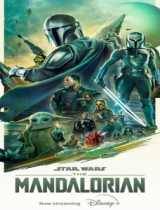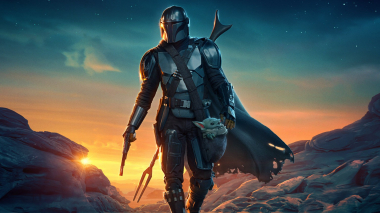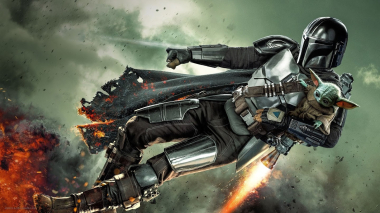The Unique Corner of Star Wars Universe: A Human Review of The Mandalorian
From the creative enclave of Lucasfilm, comes the gripping saga of "The Mandalorian". The series not only encapsulates the inherent allure of the Star Wars franchise but also gives it a distinct flavor. This audacious take on the saga unfolds five years after the pivotal "Return of the Jedi", a 1983 classic revered by Star Wars admirers across the globe. Its fresh narrative and impeccable portrayal of this period elevate the viewer experience, offering a new perspective on the familiar Star Wars cosmos.
As viewers navigate the expanse that is "The Mandalorian", it's evident that its creators aimed to make this adventure a global journey. Leveraging Disney's streaming platform, Disney+, the series was available to its audience in a staggered release, punctually at 08:01 UTC or 3:01 AM EST on Fridays. An unconventional strategy, yet one that resonates with the creators' commitment to their worldwide audience.
"The Mandalorian" is not an isolated adventure but part of a grander narrative. Its subsequent season continued to develop and expand on the original plot, preserving the series' intricate narrative. Supplementary content in the form of the "Disney Gallery: The Mandalorian" specials surfaced, unveiling previously concealed behind-the-scenes details, and enriching the viewing experience. Additionally, its influence extended to the creation of a spin-off series, "The Book of Boba Fett", featuring characters from the original series, thereby perpetuating "The Mandalorian's" remarkable legacy.
However, the third season has garnered some criticism. With Din Djarin and Grogu becoming central figures of The Book of Boba Fett, much of the inaugural two seasons' progress was enervated. The season pivots around the aftermath of the second season finale, focusing on Bo-Katan’s aspirations, the repercussions of Din Djarin's acquisition of the symbolic Darksaber, and the New Republic's struggles to manage formidable Imperial remnants like Gideon.
Regrettably, this newfound direction somewhat detracted from the unique space-western tone and theme that initially attracted audiences. While the season finale does bring a satisfying end to the story of the divided Mandalorian clans reclaiming their planet, the journey there is fraught with inconsistencies and an influx of heavy lore that attempts to integrate this once standalone show into the vast Star Wars universe.
It seems that the ambition to explore the essence of Mandalorian culture through varied beskar-wearers could have been better executed. A likely scenario could have seen The Mandalorian logically concluded after its second season, giving way to sequels focusing on different characters. Nonetheless, the series, even with its flaws, continues to be a rich addition to the Star Wars universe, exploring new facets while retaining its connection to the much-loved legacy.



